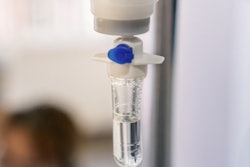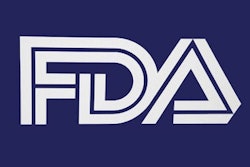
Implementing point-of-care (POC) pregnancy testing before dental procedures that involve the use of intravenous sedation could help manage practice risk, according to a recent study published in the Journal of Oral and Maxillofacial Surgery.
Researchers reviewed the feasibility of implementing preprocedure pregnancy testing at an outpatient oral and maxillofacial clinic in New York City. During a 22-month period, the program cost $70.40 per pregnancy identified but also limited the surgeons' liability.
"Although the medications utilized for outpatient sedation procedures are generally considered safe for both mothers and developing fetuses, implementation of POC [human chorionic gonadotropin (hCG)] testing allows for providers and patients to make more fully informed decisions regarding how to proceed with elective cases in the case of a previously undiagnosed pregnancy," wrote the authors, led by Chase Aaron, a dental student at New York University College of Dentistry (J Oral Maxillofac Surg, May 19, 2021).
Point-of-care pregnancy testing before intravenous sedation is routine in hospitals across the U.S. for women of childbearing age. But the practice is not as common or routine in outpatient dental and oral surgery clinics.
Bellevue's Oral and Maxillofacial Surgery Clinic in New York City is one such outpatient clinic that utilizes urine pregnancy testing for women between the ages of 12 and 50. The day of a procedure, nurses inform patients that preprocedure pregnancy testing is required and results are available within the hour.
Patients with a negative result continue with their dental procedure as planned. When there's a positive pregnancy test result, surgeons discreetly notify the patient, postpone the procedure, and refer to an obstetrician as needed.
Procedures are rescheduled for six weeks postpartum for patients with an uncomplicated delivery and two weeks after an abortion in patients who choose to terminate their pregnancy. For patients with more complicated cases, the clinic works directly with the patient's obstetrician.
The authors performed a retrospective study to better understand the cost and feasibility of running such a program at their outpatient clinic. The study included 176 women who underwent day-of pregnancy testing during a 22-month time frame.
Only five patients had urine test results suggestive of pregnancy during the study period. Patients with a positive test were an average age of 22 years -- two years younger than the average age of the entire cohort.
All five patients with positive pregnancy tests were scheduled to undergo third molar extraction. However, only one patient returned to the clinic to complete the procedure during the study time frame.
The urine tests cost $2 each for a total cost of $352 for the entire time period. That amounted to a cost of $70.40 per pregnancy identified.
The price of testing was well worth it to the clinic because the tests helped to promptly refer women for prenatal care and limit the oral surgeons' liability, the authors noted. The clinic also easily integrated pregnancy testing into its presedation workflow. However, the authors cautioned that outpatient dental clinics considering following suit should weigh safety and liability concerns against professional recommendations and standard of care.
"Given their demonstrated record of patient safety outcomes and formalized hospital-based training, oral and maxillofacial surgeons are well poised to implement routine hCG testing as well as navigate its ethical implications," the authors wrote.



















